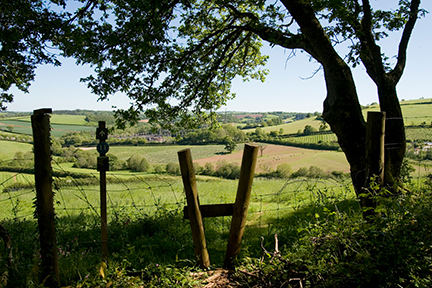Since the start of the pandemic, lockdowns have highlighted not only the vital importance of connecting with nature for our physical wellbeing and mental health, but also existing inequalities and the way they impact access to green spaces, both urban and rural.
Nature is a universal resource but Black, Asian, and Minority Ethnic (BAME) people in the UK are vastly underrepresented in, and excluded from, the countryside. Barriers such as racism, culture, confidence, language, awareness, safety, lack of transport and perception of middle-class stigma have been identified in various studies, and a 2017 report from Natural England shows Black and Asian people are much less likely to regularly visit natural settings.
Director of Wild In The City Beth Collier shared her research on this in a blog for independent race equality think tank the Runnymede Trust, explaining: “For some people, historical legacies of racism and colonialism are at the core of a cultural disconnect.
“There are also personal apprehensions about stepping into open countryside for some BME people, such as not always feeling safe, being unsure of how they will be received, or not liking how they are made to feel in these places due to racism. A process of disenfranchisement has separated us from nature as a source of nourishment which alleviates stress.”

Challenging this history of exclusion, a new generation of activists and organisations are providing a way to engage with outdoor activities that is a gateway to better health and equality of access.
Birds of a feather
Having a focus and shared interest can really help get people started on a new way of engaging with green spaces. London-based Flock Together is a birdwatching collective for people of colour, supporting participants to rebuild their relationship with nature. They host monthly birdwatching walks in remote forests and local city parks; no previous birding experience is necessary to join– you can sign up here.
Countryside camps
As a young birder, 19-year-old British Bangladeshi ornithologist, environmentalist and diversity activist Dr Mya-Rose Craig (aka ‘Birdgirl’) was acutely aware there was nobody like her out in the countryside, so started organising camps and founded her own organisation Black2Nature. Passionate about making the environment sector more diverse, she highlights the importance of the natural world for VME young people in looking after wellbeing and mental health. For more information, click here.

Going wild in the city
Wild in the City supports making nature a meaningful part of everyday life – for fun, to learn and to feel good. Opportunities include woodland living skills sessions, hiking days out, wildlife safaris and ecotherapy. They have a real ‘root and branch’ approach; their Nature Guide programme trains people of colour as outdoor activity leaders. For programmes and hikes, click here.
Walking towards a better future
Founded in 2019 by Rhiane Fatinikun, Black Girls Hike started as an Instagram page seeking other women of Black Afro/Caribbean descent to join her on walks. It has expanded to become a charity which provides a safe space for black women of all ages to explore the outdoors, hosting nationwide group hikes, activity days and leadership training events. To find out about joining a hike, click here. BAME-led hiking groups that are not women-only include @SteppersUK and @wegooutsidetoo.
Making a splash

Lockdown also meant an upsurge of interest in outdoor swimming over the past couple of years, but the Black Swimming Association (BSA) states that 95 per cent of black adults and 80 per cent of black children do not swim in England. Equal access to pools and a safe experience around water is essential for all; @swimdemcrew is a London-based inner city swim club with a mission to get more people swimming, make the sport more inclusive and a lot more social. They teach twice weekly sessions and share free online ‘how to’ lessons. To join a swim click here.










I think that these activities are a great idea for a start! Maybe we can all participate in them together, one day, rather than separating groups of people again.